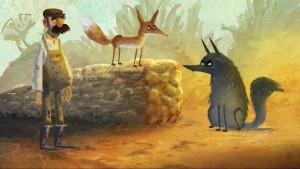New Medieval Poetry
 For hundreds of years poetry was a popular genre in the Middle Ages, from Anglo-Saxon heroic poems such as Beowulf to the sophisticated wit of Chaucer’s Canterbury Tales. Today medieval poetry can seem hard to read because of the huge changes that have taken place in the English Language. Yet at the same time, a large number of modern poets – including Seamus Heaney, Simon Armitage, Patience Agbabi, Lavinia Greenlaw and Matthew Francis – have been returning to these early works, both to translate them and for inspiration.
For hundreds of years poetry was a popular genre in the Middle Ages, from Anglo-Saxon heroic poems such as Beowulf to the sophisticated wit of Chaucer’s Canterbury Tales. Today medieval poetry can seem hard to read because of the huge changes that have taken place in the English Language. Yet at the same time, a large number of modern poets – including Seamus Heaney, Simon Armitage, Patience Agbabi, Lavinia Greenlaw and Matthew Francis – have been returning to these early works, both to translate them and for inspiration.
Chris Jones has written about this ‘return to the medieval’ in several articles and his book Strange Likeness: the use of Old English poetry in the twentieth century. He collaborated with the poet Jacob Polley on translating Old English poems such as The Ruin and the Exeter Book Riddles. Polley’s Old English-inspired ‘Ruin’ became the central poem in his collection the Havocs, which won the Geoffrey Faber Prize 2012. Polley also worked on a multi-media installation version of The Ruin, featuring recordings by Chris of the Old English original, for the exhibition Bathtime, at Segedunum Roman Fort museum in Wallsend, in collaboration with North Tyneside Council.
Researchers at St Andrews have continued to re-make and reinterpret medieval poetry in in collaboration with contemporary poets; Chris and colleague Ian Johnson contributed extensively to the charming animated i-Pad app of Seamus Heaney’s translations of the medieval Scottish master-poet Robert Henryson’s versions of Aesop’s Animal Fables, providing detailed notes and authentic medieval pronunciation. Chris regularly appears on BBC radio talking about medieval poetry, most recently as part of the BBC’s ‘We British: An Epic in Poetry‘.
